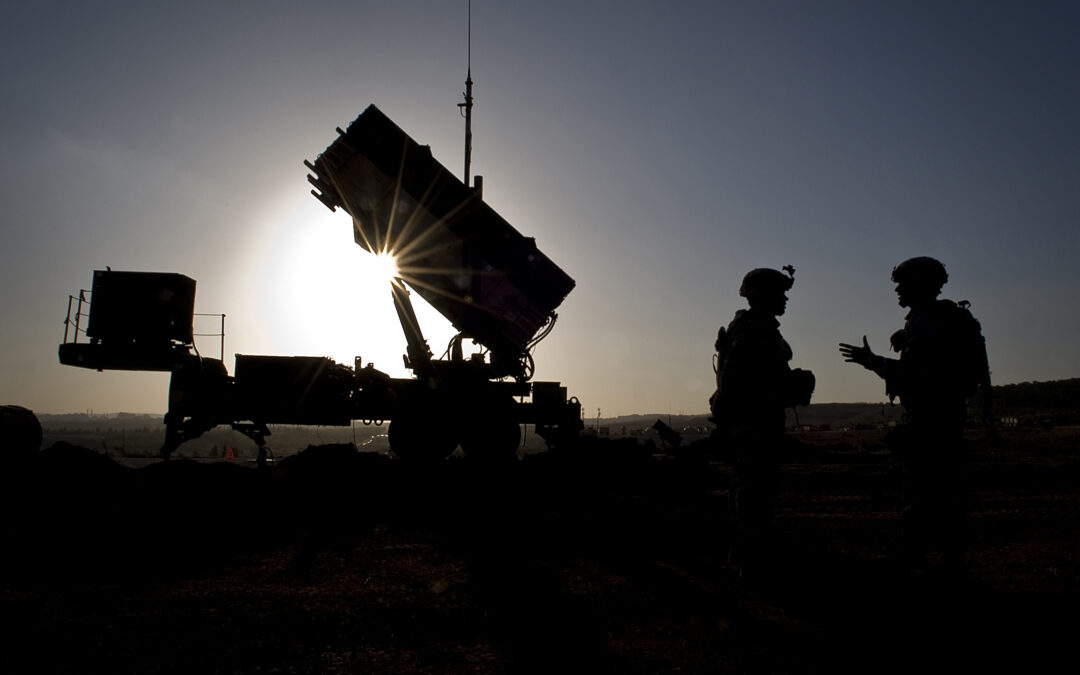Germany’s ambassador to Poland says it is “difficult to understand” Warsaw’s response to Berlin’s offer to transfer some of its Patriot air defence systems to Poland. The Polish government’s request that they instead be placed in Ukraine is “not realistic”, he adds.
After a missile last week crossed the border from Ukraine and killed two people in the Polish village of Przewodów, Germany’s defence minister, Christine Lambrecht, said that her government would be willing to bolster Poland’s air defences with German Patriot systems, as well as Eurofighter jets.
Warsaw initially reacted warmly to the proposal, with defence minister Mariusz Błaszczak saying on Monday that he “accepted it with satisfaction” and President Andrzej Duda thanking Germany for making “a very important gesture [that] I appreciate very much”.
Germany's offer to transfer Patriot systems to Poland is "a very important gesture [that] I appreciate very much", says President Duda.
"We compete in many areas, for example on economic or sporting issues, but when it comes to security we are allies" https://t.co/WVHLdmMoUk
— Notes from Poland 🇵🇱 (@notesfrompoland) November 22, 2022
However, that position began to change on Wednesday, when Jarosław Kaczyński – the powerful chairman of Poland’s ruling Law and Justice (PiS) party – told the Polish Press Agency (PAP) that his “own personal view” was that “it would be best for Poland’s security if the Germans hand over the [Patriots] to the Ukrainians”.
That “would allow them to shoot down enemy missiles more effectively”, which would “protect us from events such as the one that took place in Przewodów” and “also be protection for us if the Russians decided to attack us”.
Sending the Patriots to Ukraine would “show that the Germans are undertaking a real change of attitude, and not [just] a certain action of a propaganda nature”.
Soon after Kaczyński spoke to PAP, Błaszczak announced on Twitter that the government had proposed to Berlin that the Patriots be located in western Ukraine.
Poland's defence minister has proposed to Germany that the Patriot air defence systems it offered to transfer to Poland can instead be placed in western Ukraine, where they will defend against Russian missile attacks while also increasing the security of Poland's border https://t.co/tfb0ebDGT8
— Notes from Poland 🇵🇱 (@notesfrompoland) November 23, 2022
Many experts pointed out that, whatever the military benefits of placing the Patriots in Ukraine, doing so would be difficult as it would involve moving them outside NATO territory.
Opposition politicians and media in Poland accused Kaczyński of exploiting the issue as part of his party’s campaign for next year’s parliamentary elections, which has so far involved much anti-German rhetoric.
Yesterday, Lambrecht outlined Berlin’s position that the “Patriot systems are part of NATO’s integrated air defence, which is why it was possible to make this proposal to Poland. Proposals that deviate from that have to be discussed with NATO and our allies”.
Germany's defence minister says they will have to "discuss with NATO and our allies" whether it is possible to implement Poland's proposal that Patriot air defence systems which Berlin offered to Warsaw instead be sent to western Ukraine pic.twitter.com/YrIcegtzwz
— Notes from Poland 🇵🇱 (@notesfrompoland) November 24, 2022
Today, in an interview with Polish daily Rzeczpospolita, Germany’s ambassador, Thomas Bagger, voiced more explicit criticism of Poland’s position.
“Germany presented this offer to Poland in good faith, as a committed ally of Poland,” he said. “We did it because Polish security is at risk and we want to help.”
“The Polish response…is difficult to understand,” the ambassador continued. “The Polish government knows the difference between territory that is part of NATO and that which is not part of the alliance. And these Patriots are part of NATO’s defence capability. It’s just not realistic to use them outside of that area right now.”
Patriot batteries “have to be manned by German soldiers”, Bagger noted, “which is why the difference between NATO territory and everything beyond its borders is so important”.
🔴TYLKO U NAS. Ambasador #Niemcy w Polsce w rozmowie z @JBieleckiRz: Polska odpowiedź ws. #patriot.ów jest trudna do zrozumienia https://t.co/4Kc6eifLyL
— Rzeczpospolita (@rzeczpospolita) November 25, 2022
The ambassador also pointed out that “Germany has already supplied Ukraine with the very modern IRIS-T air defence system” and the “Ukrainians appreciate it very much”.
Regarding Germany’s offer to use its Eurofighters to patrol Polish airspace, Bagger said that “Berlin did not receive any positive response on this matter from the Polish side”.
Asked if Kaczyński was using the whole issue for electoral benefit, the ambassador said that he “does not want to believe that”. He added that “Poland could have a significant impact on the German debate on policy towards Russia, but this requires a constructive approach from Warsaw”.
Main image credit: US Army/Flickr (under CC BY 2.0)

Daniel Tilles is editor-in-chief of Notes from Poland. He has written on Polish affairs for a wide range of publications, including Foreign Policy, POLITICO Europe, EUobserver and Dziennik Gazeta Prawna.



















